On the afternoon of August 22, at the Government headquarters, Prime Minister Pham Minh Chinh attended and co-chaired the conference to review the 2024-2025 school year and deploy tasks for the 2025-2026 year.
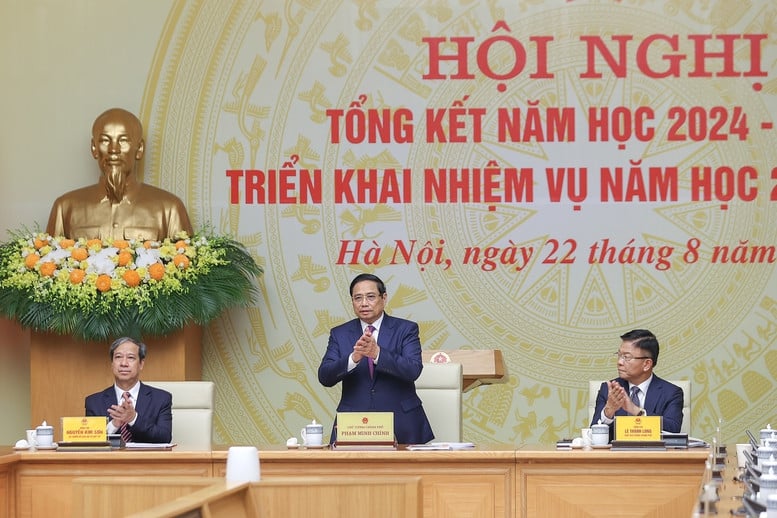
The conference was connected online to provinces and centrally run cities. Co-chairing the conference were Deputy Prime Minister Le Thanh Long and Minister of Education and Training Nguyen Kim Son. Also attending the conference were leaders of ministries, branches, central agencies, secretaries of provincial and municipal party committees, and chairmen of people's committees of provinces and centrally run cities.
By 2026, increase at least 134 trillion VND for education
According to the report of the Ministry of Education and Training, opinions at the Conference, in the 2024-2025 school year, with the attention of the Party and State, the close and timely direction of the Government, the Prime Minister, the Deputy Prime Minister in charge, the effective coordination of central departments, ministries and branches, the regular and close leadership and direction of Party committees and local authorities, and the determination and responsibility of teachers and education managers at all levels, the efforts of students, the entire education and training sector has completed the Plan of tasks and key solutions for the 2024-2025 school year and achieved many important results.
Some outstanding results include: Breakthroughs in perfecting institutions and policies for education and training development; actively and proactively implementing effectively the work of organizing and implementing two-level local government; continuing to maintain and improve the quality of education and training, the results of this school year are higher than the previous school year in all indicators of all levels/grades; conditions to ensure quality such as teaching staff and facilities continue to be strengthened; promoting digital transformation and applying artificial intelligence in education and training; the quality of vocational education and higher education has changed positively.
Notably, the 2025 High School Graduation Exam was held in 3 special contexts: Special in terms of expertise (the exam was organized according to 2 Programs, including the first time following the 2018 General Education Program); special in terms of scale (the largest ever with more than 1.16 million candidates; more than 200,000 officials directly participating); special in terms of organization and apparatus (the context of merging provincial-level administrative units, when the whole country had 63 provinces and cities; 3-level local governments at the time of the exam and 34 provinces and cities; 2-level local governments at the time of marking the exam). The education and training sector organized the exam to ensure safety, seriousness, objectivity, meeting the set goals, which shows the adaptation, transformation of the state, spirit, and capacity of the education and training sector.
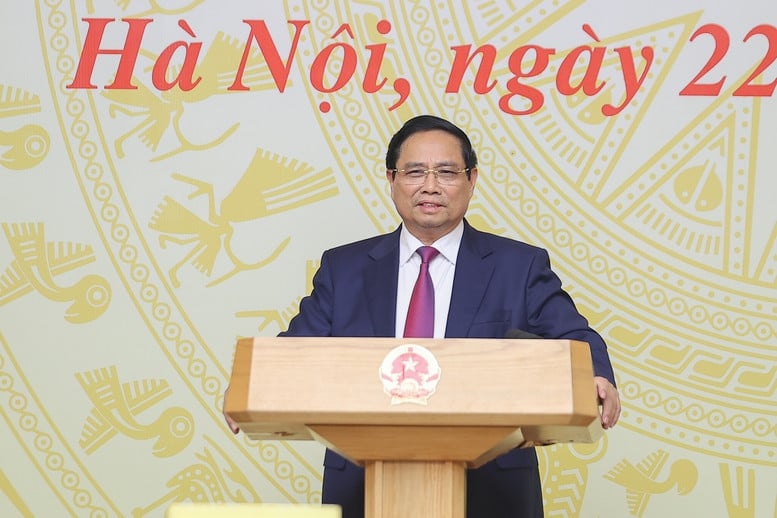
Along with that, the education and training sector database system has been basically completed with 24.55 million records connected to the national database. The online enrollment system on the National Public Service Portal has been completed at the "full process" level, allowing 100% of candidates to register for the high school graduation exam and university and college admission completely online.
More than 10 million transcripts and more than 1.5 million high school diplomas have been digitized, synchronized to the Ministry's centralized database and synchronized with the national database and VNeID e-wallet. Learners can look up information about their transcripts and diplomas on VNeID. It is expected that after September 2, 2025, learners will be able to look up data on digital transcripts and digital diplomas that have been issued on VNeID.
In the 2025-2026 school year, the national digital transcripts will be widely deployed at all levels of education and digital diplomas from high school to postgraduate level, while digitizing data for previously issued diplomas. The Ministry of Education and Training is developing and perfecting the institution for digital transcripts, digital diplomas, and certificates in the national education and training system to replace paper documents in administrative procedures and online public services.
The Ministry has submitted to the Prime Minister for approval a plan to implement the goal of eliminating at least 30% of unnecessary business investment conditions, reducing at least 30% of processing time and 30% of administrative procedure compliance costs.
The 2025-2026 school year is the first year to implement the Resolution of the 14th National Party Congress. This is also the year the whole country implements the Resolution of the Politburo on breakthroughs in education and training development and the amended laws in the field of education and training.
The education and training sector identifies key tasks and solutions to focus on institutionalizing the viewpoints, goals, tasks and solutions assigned in the Resolution of the Politburo; implementing universal preschool education for children from 3 to 5 years old; preparing well the conditions to ensure the gradual introduction of English as a second language in schools; implementing recruitment and using up all assigned teacher positions; effectively using capital sources from the state budget; urgently completing the sector's databases, ensuring connection and interoperability of data within the sector with national databases; improving the quality of human resource training; attracting and effectively using foreign resources; effectively implementing emulation movements...
According to Deputy Minister of Finance Bui Van Khang, in response to the requirements set forth in the Party and State's new policies and decisions on education and training, it is expected that in 2026, the total state budget expenditure for education and training will be at least about 630 trillion VND, an increase of about 134 trillion VND compared to 2025.
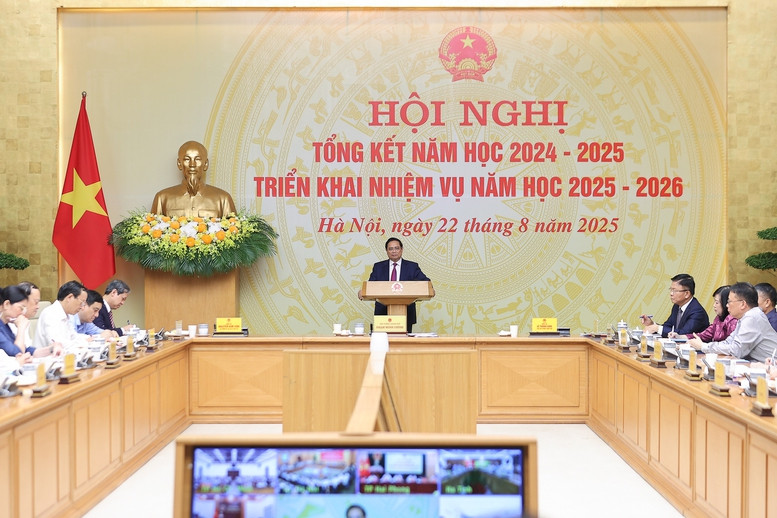
People are the deciding factor in the success or failure of nations.
Speaking at the conference, Prime Minister Pham Minh Chinh emphasized that learning, "respecting teachers and valuing education", and considering "talents as the vital energy of the nation" are the fine traditions of our nation for generations. Our Party and State always consider education and training as the top national policy with a particularly important role, creating the foundation for forming and developing the personality and capacity of each person. According to the Prime Minister, teachers are a very noble image; teachers in society are always respected and honored; working in the education and training sector is an honor and pride.
"Human resources are the most important factor, deciding the success or failure of each country. Education and training form the "Virtue - Intelligence - Body - Beauty" of people, so education and training play a particularly important role in the rapid and sustainable development of the country," the Prime Minister emphasized.
To achieve the country's two 100-year strategic goals, the Party, the State, the Politburo, the Secretariat, and General Secretary To Lam have advocated issuing many policies to create breakthroughs in development, carry out a revolution in organizational structure, "rearrange the country", deploy the "four pillars" of breakthroughs in science and technology development, innovation, national digital transformation; international integration; law making and enforcement; and private economic development. At the same time, the Politburo will issue Resolutions to create breakthroughs in education and training development, people's health care, cultural development, and state economic development.
"All of these policies and decisions are related to education and training. Therefore, more than ever, we need to focus on prioritizing all resources for education and training development, creating all mechanisms and policies that are truly open and favorable, with modern and transparent infrastructure, and smart people and management," the Prime Minister emphasized.
Regarding the results of the 2024-2025 school year, basically agreeing with the content of the report and opinions of the delegates, the Prime Minister emphasized that the achievements are very basic and summarized in 36 words: "Perfect institutions, streamlined apparatus, improved quality, professional exams, upgraded teachers, expanded integration, spacious facilities, developed science, early blooming talents".
Firstly, regarding the improvement of institutions, mechanisms, policies, and the implementation of Conclusion No. 91 dated August 12, 2024 of the Politburo, the agencies have submitted to the National Assembly for approval the Law on Teachers; Resolution on universalizing preschool education, Resolution on exemption and support of tuition fees for preschool children and general education students. Actively amending the laws on education, higher education, and vocational education to submit to the National Assembly at the next session. Efforts have been made to focus on developing the draft Resolution of the Politburo on breakthroughs in the development of education and training.
Second, regarding the arrangement and streamlining of the apparatus , the Ministry of Education and Training has done a good job of receiving the functions and tasks of vocational education from the Ministry of Labor, War Invalids and Social Affairs; and rearranging the organizational structure of the Ministry towards streamlining, effectiveness and efficiency, reducing from 23 units to 18 units.
Third, in terms of quality, innovation in teaching and learning methods , testing and assessment of students' learning outcomes has gradually stabilized; pre-testing has been reduced and post-testing has been increased.
The network of preschool, general education, and continuing education facilities has received investment attention. In the 2024-2025 school year, the country will have a total of 15,077 preschool facilities for 4,727,657 children in nurseries and kindergartens; 25,716 general education facilities for 18,539,725 students.
The scale of university enrollment in science and technology (STEM) fields has increased significantly. Vietnam's regional and international rankings have been improving. To date, there are 5 Vietnamese higher education institutions in the top 200 in Asia according to international rankings.
Fourth, the 2025 High School Graduation Exam will be professionally organized . The total number of candidates applying for the exam is 1,165,289 (an increase of nearly 100,000 candidates compared to 2024). The national high school graduation rate in 2025 is 99.25%.
Fifth, regarding the development of the teaching staff, the rate of qualified teachers increased at all levels of education (reaching 90.5% for preschool education; 91.9% for primary education; 94.8% for secondary education; 99.9% for high school).
Sixth, regarding integration , up to now, Vietnam has bilateral and multilateral cooperation relations on education and training with more than 100 countries and many prestigious international organizations; signed and implemented hundreds of international treaties and agreements on education and training, scientific research, scholarship programs, student, lecturer, and expert exchanges, etc.
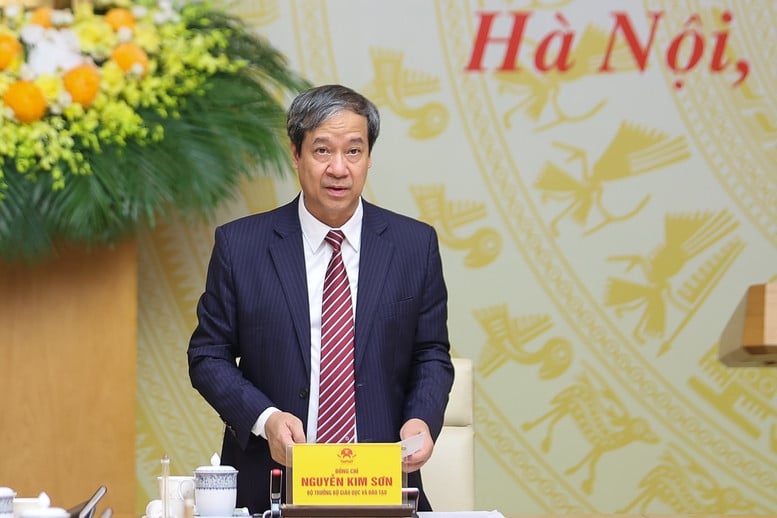
Seventh, the infrastructure for education and training is increasingly spacious. Currently, the country has 618,284 classrooms for public preschool and general education levels; of which, 554,142 classrooms are solid, reaching a solidification rate of 89.6%.
Eighth, regarding science, in the 2024-2025 school year, the Ministry of Education and Training has submitted to the Prime Minister to promulgate and implement many important projects to promote the development of science and technology and innovation. From 2022 to present, the average number of articles has increased by 12-15% per year, the number of educational institutions with authors publishing internationally has increased steadily every year. The education and training sector database system has been basically completed with nearly 24.55 million digitized electronic records.
Ninth, Vietnam has won prizes in international and regional Olympic competitions , and is among the top 10 countries with high achievements. This is a great effort given that our country is a developing country.
On behalf of the Government, the Prime Minister acknowledged, highly appreciated, commended and warmly congratulated the important results that the entire education and training sector has achieved in the past school year, making an important contribution to the overall achievements of the country.
At the same time, the Prime Minister outlined the limitations, shortcomings, difficulties and challenges: Inadequate programs, fragmented scale, unbalanced professions, low ethics, lack of skills, insufficient teachers, unconnected networks, and passive funding.
Accordingly, the implementation of the 2018 General Education Program is still inadequate. Facilities and equipment are still lacking; innovation in teaching and learning methods, testing and assessment in many educational institutions is not effective. On this occasion, the Prime Minister also noted the need to study organizing the high school entrance exam earlier and adjusting the registration regulations to be more reasonable.
The scale of vocational education is still fragmented and outdated; the structure of occupations and training levels are not suitable; the quality and effectiveness of training are not high; innovation is slow, not flexible and diverse enough to meet the needs of the labor market; retraining has not been focused on.
The scale of university training has increased but is still concentrated in economic and social sectors and fields, while basic science and technology sectors have not attracted many students; training of high-quality, highly qualified human resources has not really met the requirements.
The work of educating children, pupils and students on ideology, tradition, ethics, lifestyle and life skills is not really effective. There are still cases of school violence and school drugs.
Currently, the whole country is lacking about 102,097 teachers at all levels of public preschool and general education while there are about 60,000 assigned positions that have not been recruited.
The review and arrangement of the network of preschool and general education facilities are still inadequate; The planning of the network of higher education facilities is slow to be implemented. Facilities and equipment for training and research do not meet requirements. There is a shortage of schools and classrooms, especially in remote, border, and island areas...
Implementing financial autonomy to develop schools and classes faces many difficulties; career revenue is still low, mainly from the state budget.
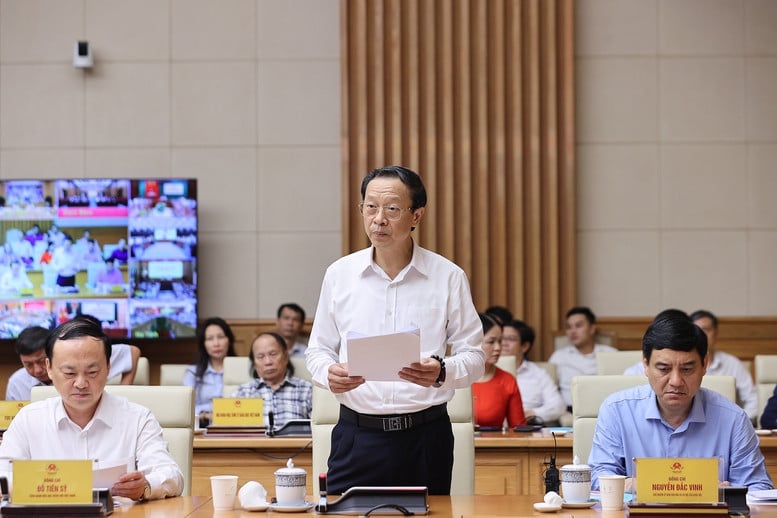
Absolutely do not let students lack schools, classes, teachers, food, or clothing.
The Prime Minister said that in the coming time, the situation is forecast to continue to develop in a complex and unpredictable manner, with more difficulties and challenges than opportunities and advantages. The education and training sector is facing an urgent need to innovate and develop more breakthroughs, both to overcome shortcomings and inadequacies, solve its own problems, and contribute significantly to the successful implementation of new policies of the Party and State, creating a solid foundation for the country to enter a new era.
From the results achieved and practical experience in directing and operating in the past time, the Prime Minister requested the Minister, the collective leadership of the Ministry and the entire education and training sector to continue to focus on thoroughly grasping and effectively implementing the main orientation: "Taking students as the center and subject - Teachers as the driving force - School as the support - Family as the fulcrum - Society as the foundation".
The Prime Minister also highly appreciated the motto of the Party Congress of the Ministry of Education and Training "Discipline - Creativity - Breakthrough - Development"; The Congress also set out directions, tasks and solutions for the new term 2025-2030 with 8 key and breakthrough contents; these are very correct and accurate contents that need to be focused on and implemented seriously, promptly and effectively throughout the sector.
Regarding the direction and key tasks for the 2025-2026 school year, the Prime Minister emphasized the need to focus on transforming the state, from considering education and training as a private matter of the sector to a common task of the entire political system, the entire people, and the entire society; shifting from equipping knowledge to developing comprehensive capacity of learners.
Along with that, the Prime Minister emphasized that all thinking, methodology, and approaches to solving problems must be innovated more strongly, and actions must be more drastic in the direction of: All citizens must have equal access to education and training, especially the disadvantaged, people in remote areas, ethnic minority areas, border areas, and islands; develop advanced, modern, and more practical programs and curricula; combine learning with practice, real learning, real exams, real results; teachers create motivation and inspiration for students; families, society, and schools are the foundation, support, and solid support for teachers and students; absolutely do not let students lack schools, classes, teachers, food, and clothing.
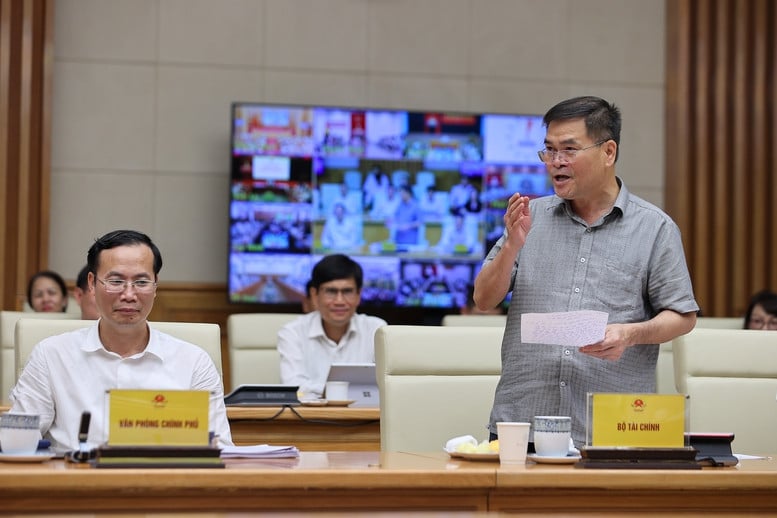
Regarding regular tasks, the Prime Minister requested to focus on carefully preparing the necessary conditions for the new school year, including the nationwide online opening ceremony down to the commune level, ensuring solemnity, coziness, neatness, efficiency, joy, and not causing fatigue for students.
Continue to improve institutions, improve the effectiveness and efficiency of state management of education and training. Prioritize resources for investment in facilities and teaching equipment for preschool and general education institutions to meet the needs of the 2018 Preschool Education Program and General Education Program. Focus on implementing the National Target Program on modernization and improving the quality of education and training for the period 2026-2035 after being approved by the National Assembly to increase investment in facilities and equipment for preschool and general education.
Building and developing a team of teachers with adequate qualities and abilities, equal to the task. Focusing on overcoming the surplus and shortage of teachers, ensuring the principle of "where there are students, there must be teachers" but must be reasonable and effective. Strengthening the training and retraining of teachers, including professional ethics and professional knowledge to meet the requirements of educational innovation. Building a mechanism to mobilize artisans, artists, professional athletes, foreigners... to participate in educational activities in schools.
Pay attention to developing education and training for children and students in areas with difficult socio-economic conditions, ethnic minority areas, mountainous areas, border areas, and islands.
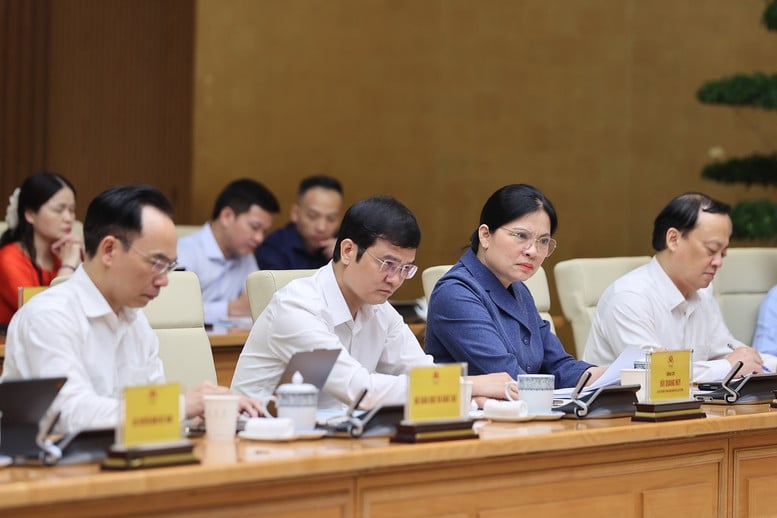
Regarding a number of breakthrough tasks, the Prime Minister requested focused preparations to thoroughly grasp and synchronously, resolutely and effectively implement the Politburo's Resolution on breakthrough development of education and training as soon as the Resolution is issued.
Continue to review and plan the network of preschool, general education, continuing education, education for the disabled, higher education and pedagogical colleges, and vocational education; mobilize all resources. Ensure appropriate land funds to build schools and classrooms, especially to add schools and classrooms to implement universal preschool education for children from 3 to 5 years old; build primary and secondary boarding schools in 248 land border communes, initially piloting investment in building or renovating 100 schools in 2025.
Improve the quality of preschool and general education. Implement universal preschool education for children from 3 to 5 years old; ensure child safety. Improve the quality of digital capacity development, artificial intelligence (AI); gradually make English the second language in schools.
Improve the quality of human resource training, especially high-quality human resources associated with scientific research and innovation; focus on industries and fields of knowledge economy, digital economy, green economy, circular economy, especially basic sciences, engineering, technology and new industries (such as artificial intelligence, semiconductors, high-speed railways, nuclear power, etc.).
Promote digital transformation, enhance the application of information technology. Encourage the development and exploitation of big data, application, and appropriate development of artificial intelligence. Continue to build a national learning infrastructure, a shared digital learning resource warehouse for the entire industry to create a foundation for promoting a learning society and lifelong learning.
Promote international cooperation and integration. Expand, diversify and deepen international cooperation mechanisms; promote negotiations and signing of agreements and treaties on educational cooperation.
Implement the policy of supporting lunch for primary and secondary school students in land border communes from the 2025-2026 school year; exempt and support tuition fees for preschool children and high school students.
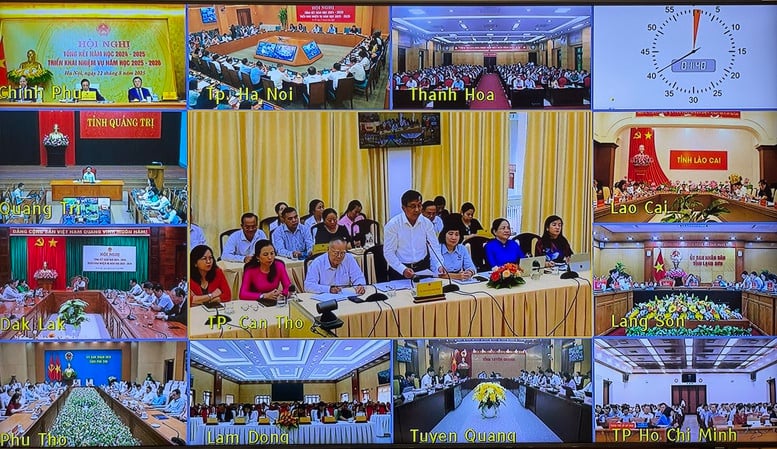
Regarding a number of specific tasks of ministries, agencies and localities, in the spirit of assigning "6 clear tasks: clear people, clear work, clear time, clear responsibility, clear product, clear authority", the Prime Minister directed the Ministry of Education and Training to preside over and coordinate with ministries and local branches to continue implementing Conclusion 91 of the Politburo; especially focusing on developing a draft Resolution of the National Assembly on specific mechanisms and policies and the Government's Action Plan to implement the Resolution of the Politburo on breakthroughs in education and training development.
The Ministry of Finance closely coordinates with the Ministry of Education and Training and relevant ministries and branches to prioritize balancing central budget funds for education and training; using state resources to lead and activate social resources.
The Ministry of Home Affairs coordinates with the Ministry of Education and Training and localities to urgently check the situation of recruiting additional teachers for localities in the period of 2022-2026; review and propose additional teachers for the period of 2026-2030 to overcome the shortage of teachers.
The Ministry of Construction continues to review and inspect construction planning, ensure land funds for building schools and classrooms; urgently develop and complete the overall design and sample design options for inter-level schools in border communes for localities to implement, in accordance with the conditions of each region and locality.
The Ministry of Culture, Sports and Tourism shall strengthen propaganda on policies, guidelines and strategies for education and training development, create social consensus; set examples of exemplary teachers and students to create a widespread influence; and strictly handle cases of false and distorted news.
People's Committees of provinces and centrally run cities closely coordinate with the Ministry of Education and Training to focus on directing the Departments of Education and Training and commune and ward authorities to strengthen state management of education and training in the area.
The Prime Minister recalled that in his letter to students on the first school opening day of the Democratic Republic of Vietnam (September 15, 1945), beloved President Ho Chi Minh wrote: "Whether Vietnam's mountains and rivers become beautiful or not, whether the Vietnamese people can step up to the stage of glory to stand shoulder to shoulder with the world powers or not, depends largely on your studies." The Prime Minister stated that the education sector needs to deeply absorb Uncle Ho's teachings in carrying out the glorious mission and responsibility of "teaching letters and teaching people" to students, young generations - the future owners of the country.
The Party, the State, the Government and the Prime Minister always understand and share the difficulties and hardships of the education and training sector, of more than 1 million teachers who are making tireless efforts, working tirelessly, day and night dedicating themselves to the cause of "cultivating people", as beloved Uncle Ho once advised us: "For the benefit of ten years, we must plant trees, for the benefit of a hundred years, we must cultivate people".
On the eve of the new school year 2025-2026, on behalf of the Government, the Prime Minister wished the education and training sector and all teachers to always promote their sense of responsibility and enthusiasm for the profession, overcome all difficulties, persevere in the goal of fundamental and comprehensive innovation in education and training, making an important contribution to bringing our country to steady development in the new era, to develop richly, civilizedly, prosperously, and prosperously, and for the people to be increasingly well-off and happy.
(Source: Baochinhphu.vn)
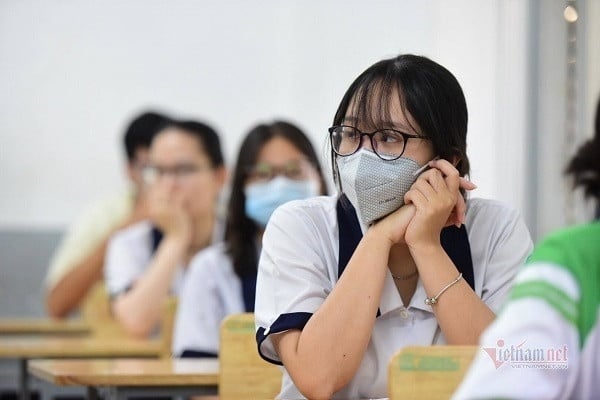
Source: https://vietnamnet.vn/thu-tuong-can-tap-trung-uu-tien-moi-nguon-luc-cho-giao-duc-va-dao-tao-2435092.html



![[Photo] President Luong Cuong receives delegation of the Youth Committee of the Liberal Democratic Party of Japan](https://vphoto.vietnam.vn/thumb/1200x675/vietnam/resource/IMAGE/2025/8/22/2632d7f5cf4f4a8e90ce5f5e1989194a)
![[Photo] President Luong Cuong attends special political-artistic television show "Golden Opportunity"](https://vphoto.vietnam.vn/thumb/1200x675/vietnam/resource/IMAGE/2025/8/22/44ca13c28fa7476796f9aa3618ff74c4)

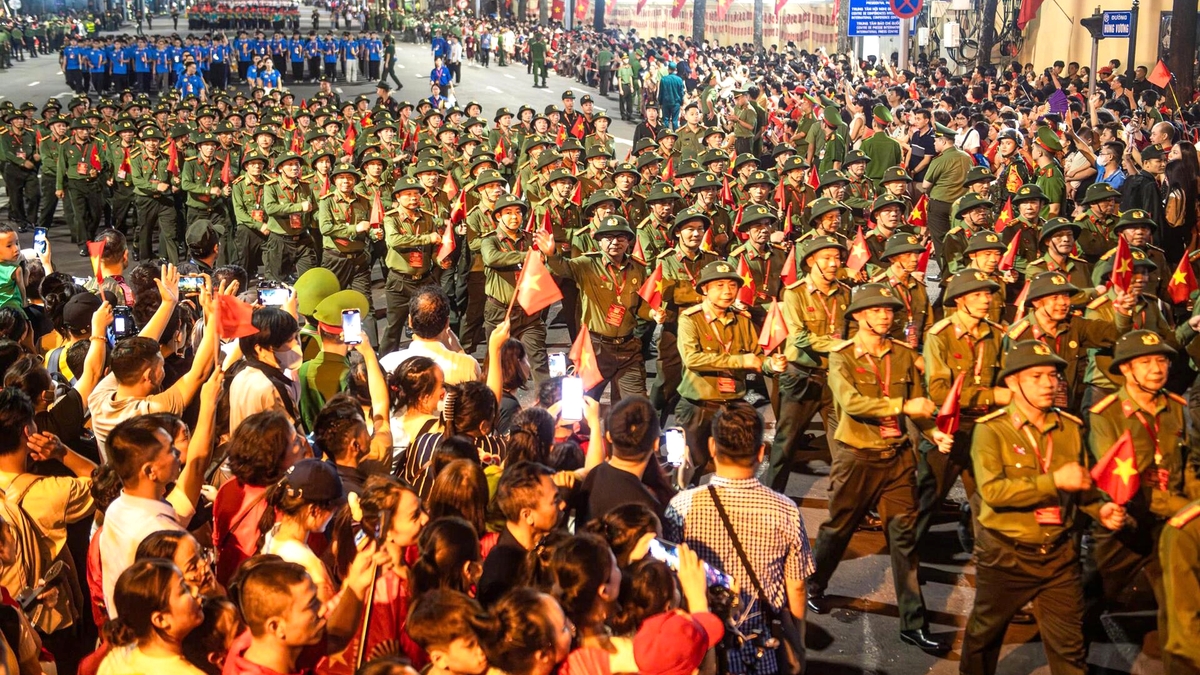

![[Photo] Prime Minister Pham Minh Chinh chairs the conference to review the 2024-2025 school year and deploy tasks for the 2025-2026 school year.](https://vphoto.vietnam.vn/thumb/1200x675/vietnam/resource/IMAGE/2025/8/22/2ca5ed79ce6a46a1ac7706a42cefafae)
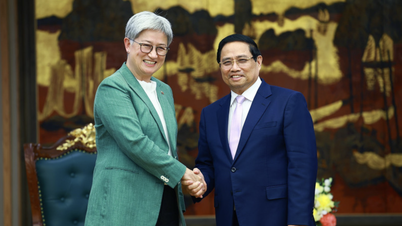

![[Photo] General Secretary and Prime Minister visit the National Exhibition and Fair Center](https://vphoto.vietnam.vn/thumb/402x226/vietnam/resource/IMAGE/2025/8/19/f4503ad032d24a90beb39eb71c2a583f)

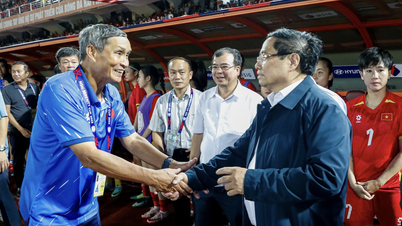

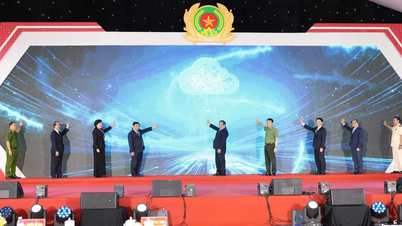

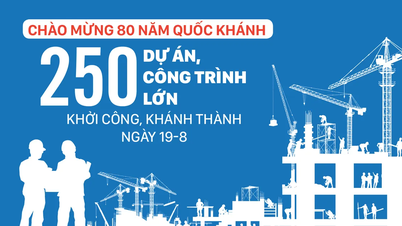
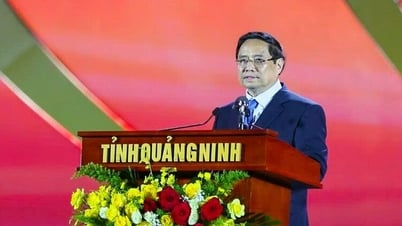

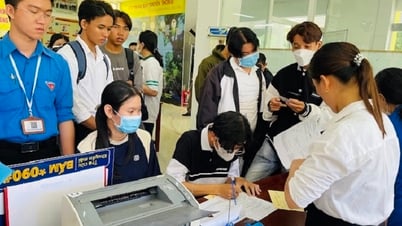

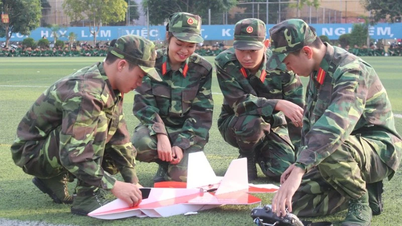
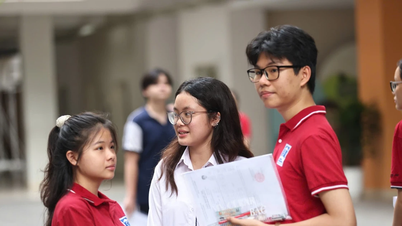
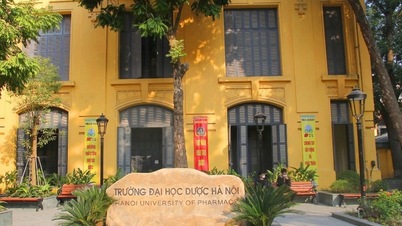
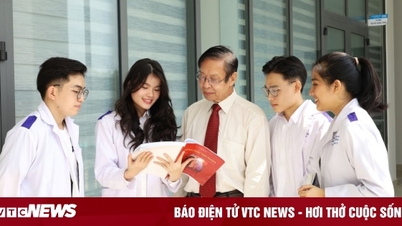

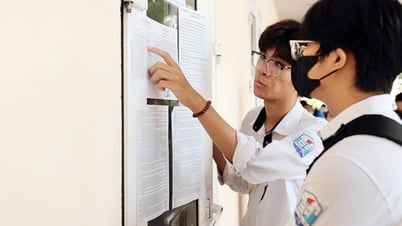







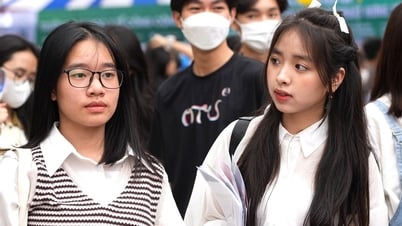




































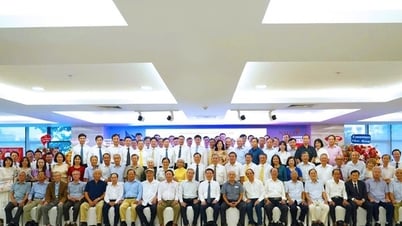

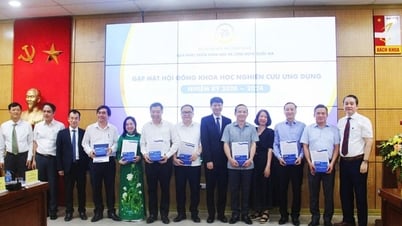









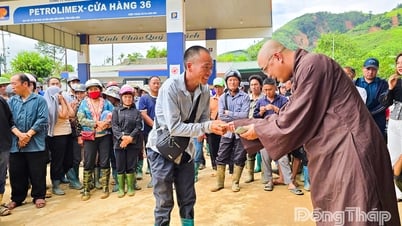



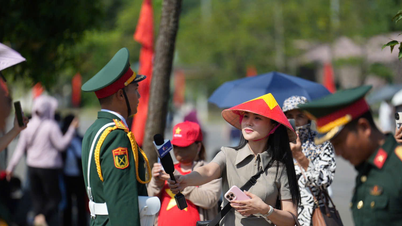

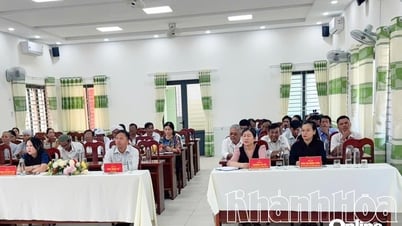












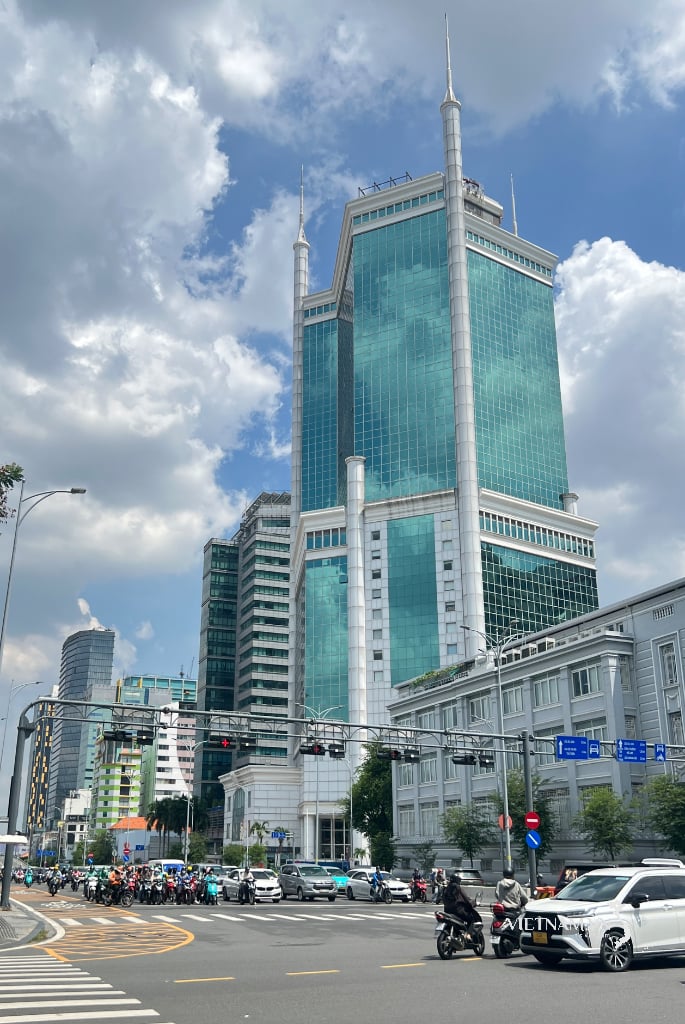


Comment (0)